Posted on 12/20/2023
Is a Breather Hose important? The Air Intake Breather Hose creates a partial vacuum in the Crankcase and other connected areas, but its primary function is a bit more specific. Here's a breakdown of what it does: Primary Function of the Air Intake Breather Hose Ventilate the crankcase: The Breather Hose provides a path for these gases to escape the crankcase. Maintain pressure balance: This Vacuum prevents Oil leaks, reduces the risk of Engine sludge buildup, and improves engine performance. Direct gases to the intake manifold: The Breather Hose typically routes the Crankcase gases back to the air intake manifold. This allows the gases to be burned in the combustion chamber, reducing Emissions, and improving Fuel Efficiency. Separate oil mist: This feature prevents excessive oil consumption and protects the intake system from contamination. S ... read more
Posted on 11/30/2023
What can cause no Heat in Car? Several issues can cause a car's heater to malfunction, resulting in a chilly cabin. Here are some of the most common causes of no heat in a car: Low Coolant: A low coolant level is the most common cause of poor heater performance. If your is low on Coolant, the heater core won't receive sufficient hot water to generate heat. Being pro-active about checking the coolant level may prevent any major problems. Faulty Thermostat: One of the functions of the Thermostat is to regulate the flow of coolant through the engine and heater core. A faulty thermostat may also cause the engine to overheat. Clogged Heater Core: The Heater Core transfers heat from the Coolant to the air inside the cabin. A clogged Heater Core prevents an efficient Heat transfer.. This can cause weak or intermittent heat. Faulty Blower Motor: The Blower Motor component circulates air thru the Heater Cor ... read more
Posted on 11/3/2023
Do cars still need to be winterized? Yes, it's always a good idea to winterized your car read inL To winterize your car, you should: Get a Tune-up. This will ensure that your Engine and other major Parts are in good working order and can handle the cold weather. Check your Fluids. Make sure that your Oil, Coolant, Brake Fluid, and Windshield Washer Fluid are all at the proper levels. Replace your Tires. If you live in an area that gets a lot of snow and ice, you should consider switching to snow tires. Snow tires are designed to grip snow and ice better than all-season tires. Although we have good all-season on our personal Vehicles and they are great. Inspect your Battery. Cold weather can drain a Battery's power more quickly. Testing your Battery to see if it might need to be replaced. Check your heater. Make sure that your cars' Heater is working ... read more
Posted on 10/20/2023
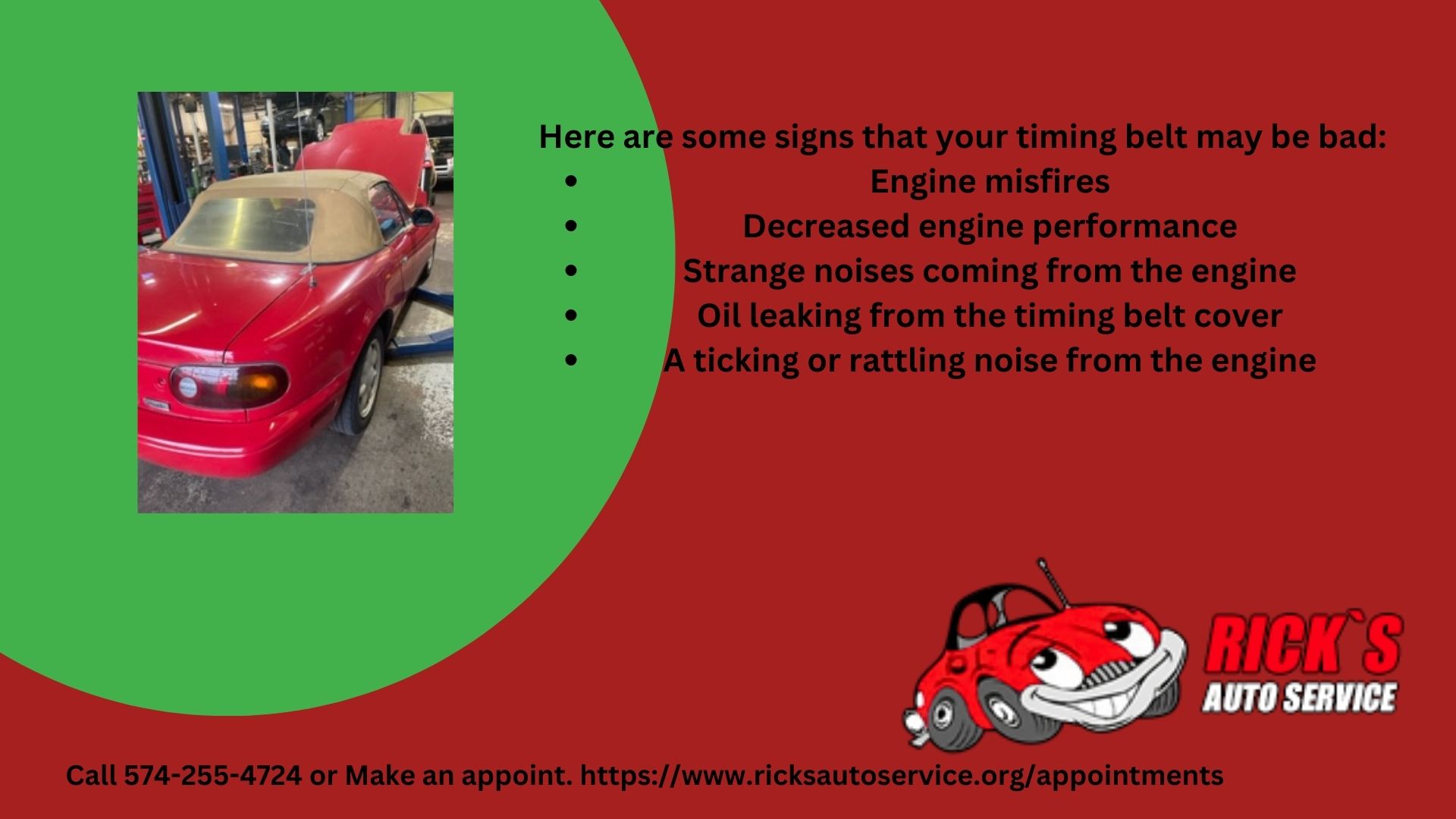
What is a Timing Belt? The purpose of a timing belt is to synchronize the rotation of the crankshaft and camshaft in an internal combustion engine. With the Valves opening and closing at the right time, your Engin can be more efficient. You should not drive your car with a bad timing belt. If the timing belt breaks, the valves and pistons can collide, causing severe engine damage. This can be a very expensive repair, and in some cases, the engine may need to be replaced entirely. Here are some signs that your timing belt may be bad: Engine misfires Decreased engine performance Strange noises coming from the engine Oil leaking from the timing belt cover A ticking or rattling noise from the engine If you notice any of these symptoms, it is important to have your timing belt inspected by a qualified mechanic as soon as possible. How often should I replace my timing belt? The recommended interval for timing belt replacement varies depending on th ... read more
Posted on 9/20/2023
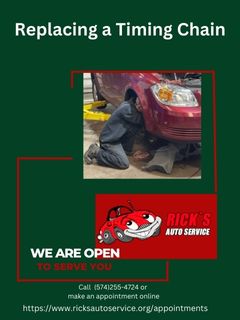
Is it worth it to replace a Timing Chain? Your vehicle’s engine is a complex system made up of various Parts that work together to keep your car running. The Timing Chain is one such part, it controls the timing of your Engine’s Valves. Responsible for opening and closing the valves at the right time, ensuring that the air-fuel mixture is delivered at the proper time and in the correct amount. Over time, however, the timing chain can wear out and eventually fail, If the chain stretches too much, it can become loose and cause the timing of your engine’s valves to be off. This can cause your engine to run poorly and even lead to serious engine damage if left unchecked. What are the Symptoms of a bad Timing Chain? Some of the signs that your timing chain needs to be replaced include engine misfires, reduced performance, and strange engine noises. I can lead to serious Engine damage and even complete engine failure. In this blog post, we will discuss why your timing ch ... read more
Posted on 8/23/2023
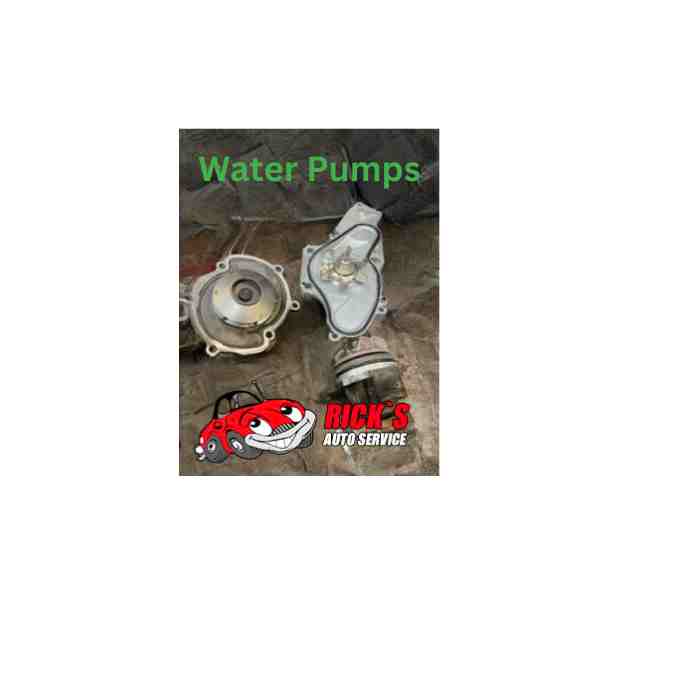
What is a does a Water Pump do? A Water Pump is a small yet crucial part that is in charge of circulating Coolant throughout the engine's cooling system. The Coolant absorbs the heat generated by the Engine and releases it through the radiator. Keeping the Coolant flowing through the Engine, which, in turn, prevents overheating. What are the Signs of a Bad Water Pump? The Water Pump is strong and it can last up to 100,000 miles if you take care of it. However, like other car parts, the Water Pump can fail and malfunction. Signs that your water pump is bad include: • Strange noises coming from the Engine area. • The Engine Temperature Gauge reading high. • Dripping Coolant under your vehicle. • The engine making a grinding noise. Can You Drive with a Bad Water Pump? The water pump is important for the car's engine. If it breaks, the engine can get too hot. It ca ... read more
Posted on 8/15/2023

Our team is The Socket Wrenches and our goal is to raise 100k pairs of socks as a team! All new socks collected at Ricks Auto Service will go to the local Veterans and the Homeless Center. Socktember was started in 2020 in Washington state by the DJOJO to collect socks for local charities. Each year, it has grown to include more teams across more states, even spreading into Canada. The premise was simple; most local community services need socks. It is one of the highest demand items. For the month of September, we will collect new socks in our lobby. How can you get involved? By donating NEW socks! Now through the end of September, Rick’s Auto Service will be collecting new sock donations. Want to donate online? Scan our Amazon wish list https://www.amazon.com/hz/wishlist/ls/2SX1FMDH84FJV/ref=nav_wishlist_lists to send socks directly to us or drop them off to ... read more
Posted on 7/19/2023
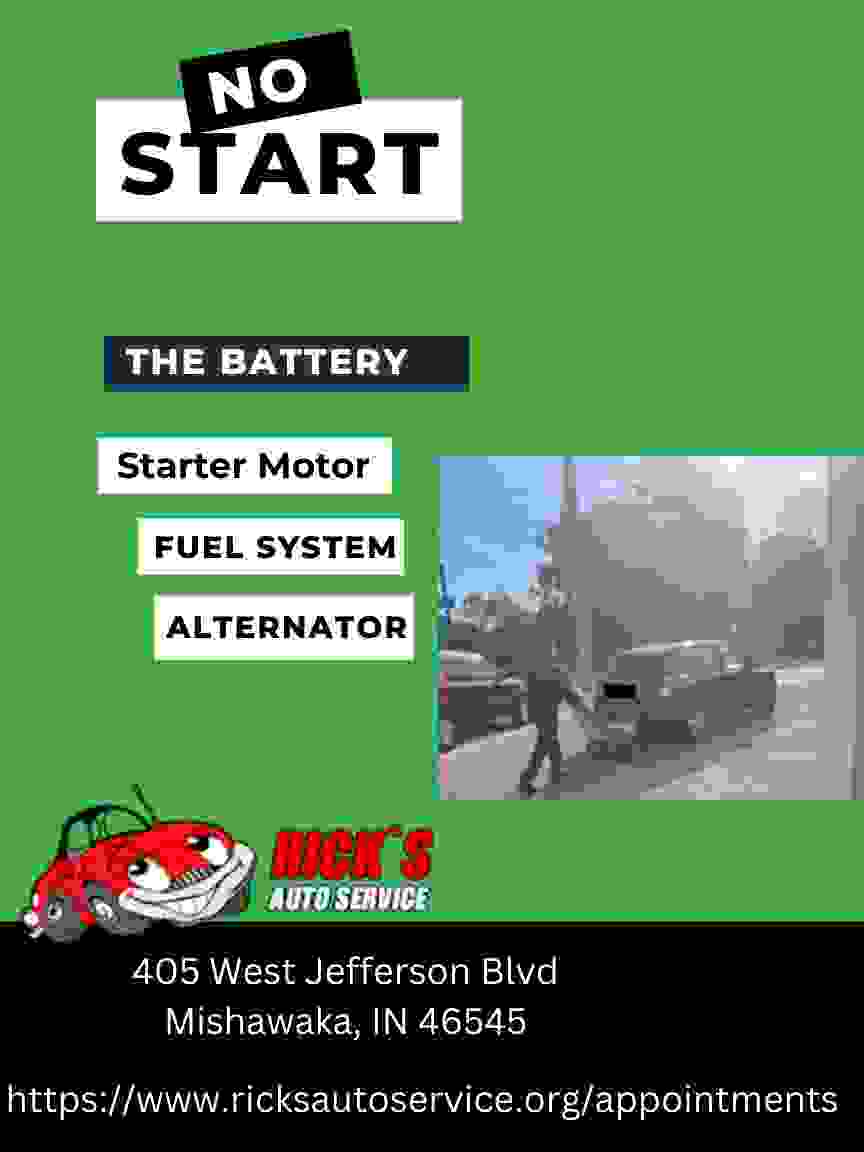
Starting Problems? It can be frustrating when your car simply will not start. You turn the key in the ignition, but it does not even crank. There are so many reasons for a No-Start read on: Dead Battery: The most common reason your car will not start is a dead battery. When you turn the key, it could be the battery or a problem with the starter. If you have an older Battery, it could die at any time. You can try jump-starting the car or replacing the battery if it is too old. Starter Motor: If the battery is good but the car still refuses to start, then the starter motor could be the issue. If the Starter Motor is the culprit, the car won’t start. You can try tapping on the starter or checking the connections to see if this helps. Fuel System: If the starter motor is fine, the next possible cause is the fuel system. The Fuel Pump is going bad or the Fuel Line is clogged, the car may not start. One that m ... read more
Posted on 7/18/2023
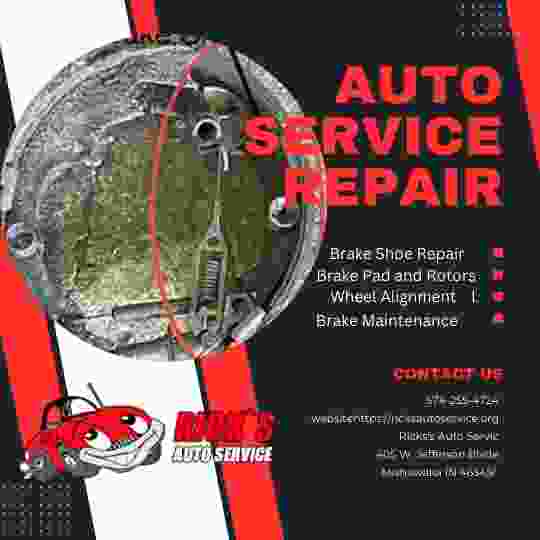
What does Brake Shoes do? Brake Shoes are a component of Drum Brake Systems, specifically designed to slow or stop your car when the brakes are activated. They are typically curved and lined with friction materials that work together with the drums to provide braking force when the Brake Pedal is applied. The brake shoes press against a rotating brake drum, producing the required friction that consequently slows down or stops the car. How Do They Work? When you press the Brake Pedal, Hydraulic Fluid runs into the Brake Wheel Cylinder, which subsequently forces a brake shoe against the inner surface of the drum brake, slowing down the vehicle. The amount of friction between the brake shoe and the drum generates momentum, which causes the wheel to chalk in motion, slowing down the car. The brake shoes expand and contract due to the hydraulic pressure, providing the necessary braking power. How to Maintain Brake Shoes Like any other component of your car's braking system, the bra ... read more
Posted on 7/12/2023
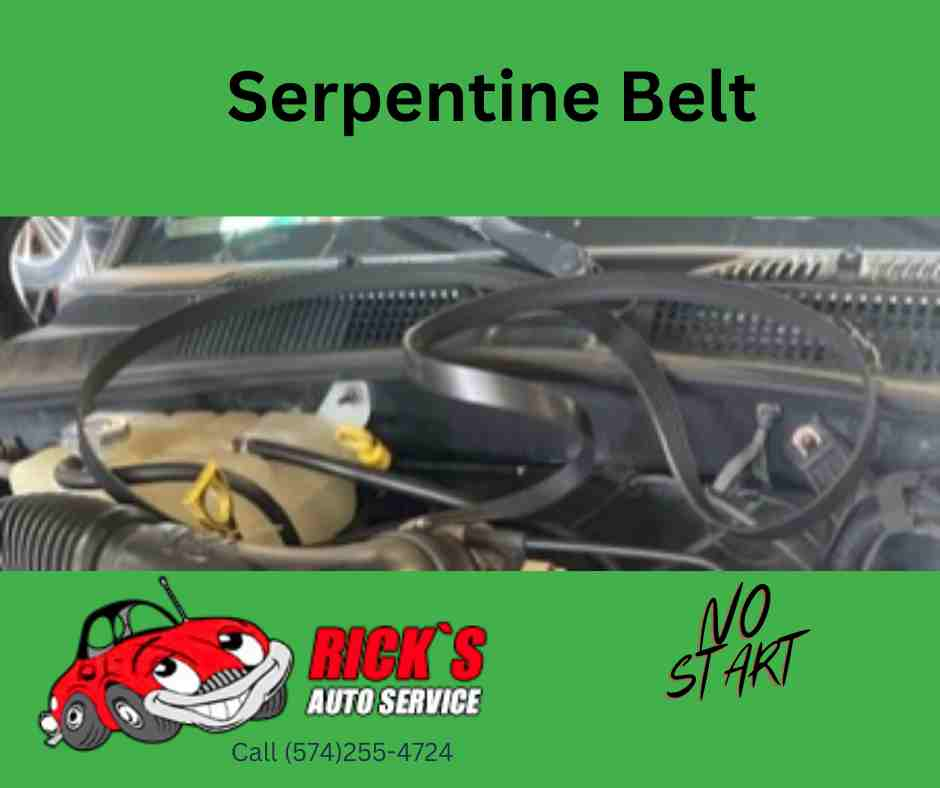
Have you ever been driving down the road when suddenly your car completely shuts off and refuses to turn back on? When faced with a No-Start issue, you might assume the problem lies in your Battery or Starter. However, one often overlooked culprit could be the Serpentine Belt. In this blog post, we’ll explore the dangers of a bad serpentine belt, how to tell if it’s in need of replacement, and how it plays a crucial role in getting your car started. What is a Serpentine Belt? Your car’s Serpentine Belt is responsible for driving multiple components of your Engine, including the Alternator, Power Steering Pump, and air conditioning compressor, to name a few. A serpentine belt is a long continuous belt that snakes around various pulleys. It’s made of durable rubber and has ribs on the underside that improve grip. When the Engine is running, the Serpentine Belt works hard, turning and providing power to all those important components ... read more